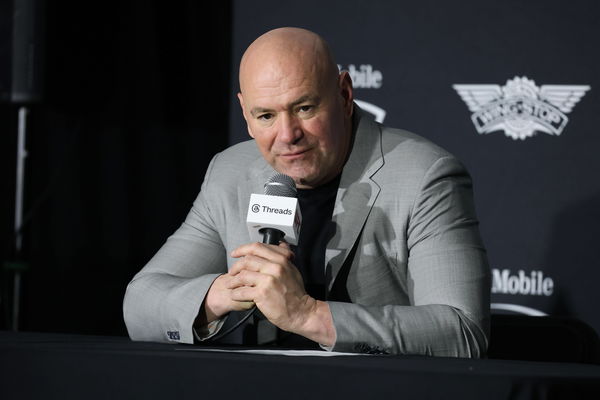

The UFC’s 2025 Shanghai journey lit up the The Shanghai Indoor Stadium pulsed with energy as the UFC touched down in China, a sold-out crowd roaring through every walkout and exchange. Without a global superstar on the card, the event still carried the weight of spectacle, the atmosphere thick with the anticipation of history being made.
Watch What’s Trending Now!
By the time the main event arrived, fans were on their feet. Johnny Walker, unpredictable as ever, met undefeated hometown favorite Mingyang Zhang under the brightest lights of his career. The fight began with Zhang finding his rhythm, snapping kicks and testing range while the crowd willed him forward. But Walker, chaotic and dangerous, adapted. In the second round he turned to brutal low kicks, carving into Zhang’s lead leg until the local hero’s movement faltered. Smelling blood, Walker swarmed, forcing Zhang to the canvas and raining down strikes. At 2:37 of Round 2, referee Marc Goddard stepped in, waving off the contest as Walker raised his arms to a chorus of stunned gasps and scattered applause.
The finish immediately fractured the conversation inside the arena and online. Some felt Goddard had hesitated, leaving Zhang to absorb unnecessary punishment. Others argued the stoppage was perfectly timed, pointing out that Zhang had nearly regained his footing but never fully escaped Walker’s barrage. Within minutes, X threads and Reddit discussions filled with replay clips, angles dissected frame by frame, each user convinced their interpretation was the truth.
The debate carried a familiar rhythm. Just a week earlier at UFC 319, Goddard’s officiating during the Chimaev–Du Plessis middleweight title fight had sparked its own wave of criticism after multiple stand-ups. Defenders, including veteran referee Herb Dean, reminded fans that under the unified rules, stalling without meaningful offense justifies resets. Critics accused referees of breaking momentum. Shanghai became the next chapter in that ongoing narrative: is the modern MMA audience too quick to blame referees for outcomes they dislike?
The controversy quickly gained traction on Reddit, where one user asked, “Another awful late stoppage from Goddard?”

Imago
UFC s president Dana White during the press conference, PK, Pressekonferenz after the fight between Spanish Topuria and Brazilian Charles Oliveira during the unofficial weigh-in event fight held at the T-Mobile Arena in Las Vegas, United States, 29 June 2025. Ilia Topuria vs Brazilian Charles Oliveira ACHTUNG: NUR REDAKTIONELLE NUTZUNG PUBLICATIONxINxGERxSUIxAUTxONLY Copyright: xOctavioxGuzmanx GRAF6466 20250629-55017266219_1
Meanwhile, other fans jumped into the discussion, reigniting debates over the referee’s recent calls at UFC 319 last week. Ultimately, someone could have avoided the debate, but Marc Goddard’s timing grabbed the spotlight, keeping the conversation around the fight alive well beyond the Octagon.
MMA fans defend referee Marc Goddard as debate heats up
Marc Goddard, the British-born fighter turned referee, began officiating in 2004, drawing on his extensive in-cage experience and deep passion for MMA. Goddard went on to make history as the first British referee to officiate in the UFC, overseeing countless high-profile bouts over a 17-year tenure. Notably, he was in charge of the interim middleweight title fight between Israel Adesanya and Kelvin Gastelum at UFC 236, a matchup that drew its own wave of scrutiny.
At UFC Shanghai, the spotlight once again fell on Goddard as he officiated the main event between Zhang Mingyang and Johnny Walker. Many fans supported his judgment on the stoppage. “I don’t think so. It was close, but I don’t think it was late. He was fighting back,” one fan wrote, a sentiment echoed by others: “I don’t think so.” Referee decisions continue to ignite debate in MMA circles, with fans frequently arguing over early or late stoppages.
In 2025, a notable case came during the Derrick Lewis vs. Talison Teixeira fight, where Lewis won by TKO after the referee deemed Teixeira was not defending himself intelligently while attempting to use the cage to regain his footing. The decision sparked discussion, with one fan defending it: “Disagree, he was moving and trying to get out of bad spots, and the second he rolled over, he called it. Stoppage was fine.”
During the Shanghai headliner, Zhang briefly got to his feet, but Walker’s relentless strikes kept him in danger, reinforcing Goddard’s decision. Fans praised the call, with one noting, “Nah, that was a good stoppage. He was defending himself, nearly got back to his feet at one point.” Despite Zhang’s crushing home-crowd loss—a nightmare for any fighter—Goddard received widespread support. Another fan remarked, “Good stoppage, put the people down, dawg.”
This controversy follows a pattern; at UFC 319, during the middleweight title clash between Khamzat Chimaev and Dricus Du Plessis, Goddard repeatedly stood the fighters up due to inactivity, drawing attention and debate once again. With UFC Shanghai now behind us, the question remains: has blaming referees become the default in MMA discourse?
